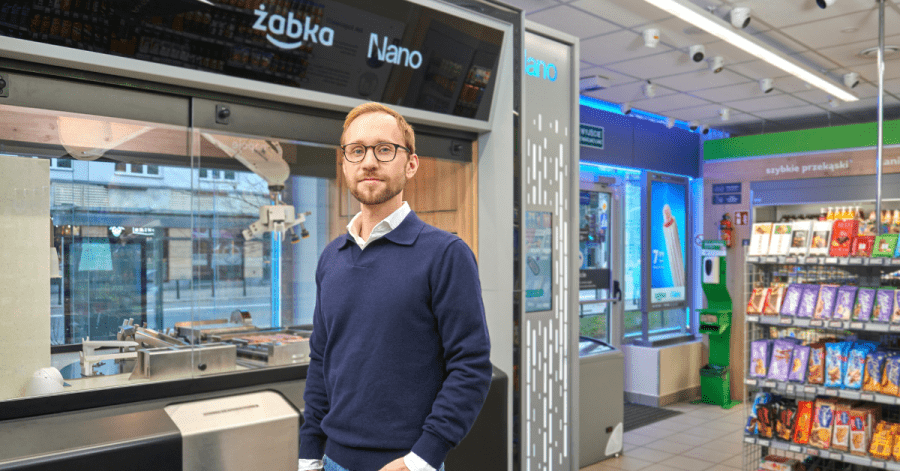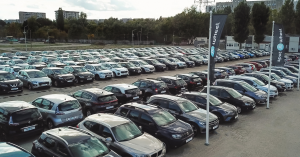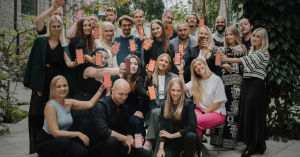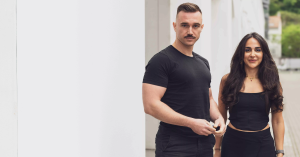“Every company is a tech company” has become a common mantra in today’s business world. It’s definitely true when it comes to the Żabka Group, the leading convenience ecosystem in Poland. The key to the success lies in the symbiosis of own expertise and new, groundbreaking technologies developed by the rising startups. This creates a whole new category of opportunities for early-stage companies.
Żabka Group has some serious offers for startups that want to reach wider audiences. The Poland-based convenience ecosystem has nearly 3 million customers using its services daily. It welcomes them in over 9,000 stores, over 50 autonomous stores, through e-commerce and q-commerce services, and many more. The company aims to blur the lines between online and offline shopping.
Two years ago, it constituted Venture Studio, a division dedicated to supporting innovators, searching for new business ideas and relationships within the startup community and building ventures that subscribe to Żabka Group’s sustainable growth strategy.
„We work closely with startups to bring innovative solutions to retail. We support companies that are designing unconventional solutions for e-commerce, q-commerce, and D2C. We share our expertise to help young entrepreneurs test their ideas, reduce the risk of failure, and bring their products to market”, says Karol Gajewicz. “Our Venture Studio is all about supporting innovators, searching for new business opportunities, and building relationships within the startup community”, he adds.
One of the ways to do it is through acceleration programs. Venture Studio already runs three: Startup Impact Program seeking startups that create a positive impact on the world around them, Foodtech lab, focused on innovation in the food industry, and Żabka Future Lab – a flagship program dedicated to supporting startups that can add value for the whole Żabka Group or one of its areas of operations.
Żabka Future Lab
Żabka Group has just launched the second edition of the Żabka Future Lab program, looking for startups from all across Europe, and is especially keen on working with startups from South Eastern Europe.
“Innovation knows no borders. We have been observing startups and tech companies in Europe for quite some time. When it comes to grocery shopping, logistics, convenience, or e-commerce, there are brilliant founders turning their ideas into businesses and bringing technology to the market everywhere,” says Karol Gajewicz.
The company promises tailored support for startups selected for the online program, including workshops and mentoring sessions with industry experts to improve business models, learn how to communicate with potential customers, or develop a proper product/market fit.
“Each startup is different, and their needs also differ. And we can help them avoid mistakes and bottlenecks in the creation of route-to-market, pitching to customers or investors and business development”, says Gajewicz. Depending on their development stage and needs, some of the companies can be offered an equity investment, he adds.
The applications for the program are open till the 15th of March and selected companies will take part in the acceleration from April till June.
Alumni of Żabka Future Lab
Żabka Future Lab has already seen pilots, tests, and implementations. Including Virbe, and Ninjay. Virbe is a startup that creates 3D virtual assistants using conversational AI, used to help stores improve customer experience. They can be present both in digital channels as well as in physical locations, serving as brand ambassadors that are brand always available. Żabka Group tests them in autonomous stores, to provide customers guidance, provide personalized product recommendations, and make the checkout process a breeze. Ninjay supports the customization of the offering based on consumer choices. While the customer can’t directly interact with the technology, like in the case of Virbe, it can certainly impact the offering available in both online and offline channels.
“As a technology-driven company, we’re able to quickly test and validate new ideas. And with our large-scale operations, we’re able to do it in a real environment, always listening to customer feedback”, says Karol Gajewicz. “That’s how we’ve introduced new payment methods, q-commerce services, and invested in AI. It always starts as a small test. And as a result, Żabka Nano is the largest chain of autonomous stores in Europe.”







